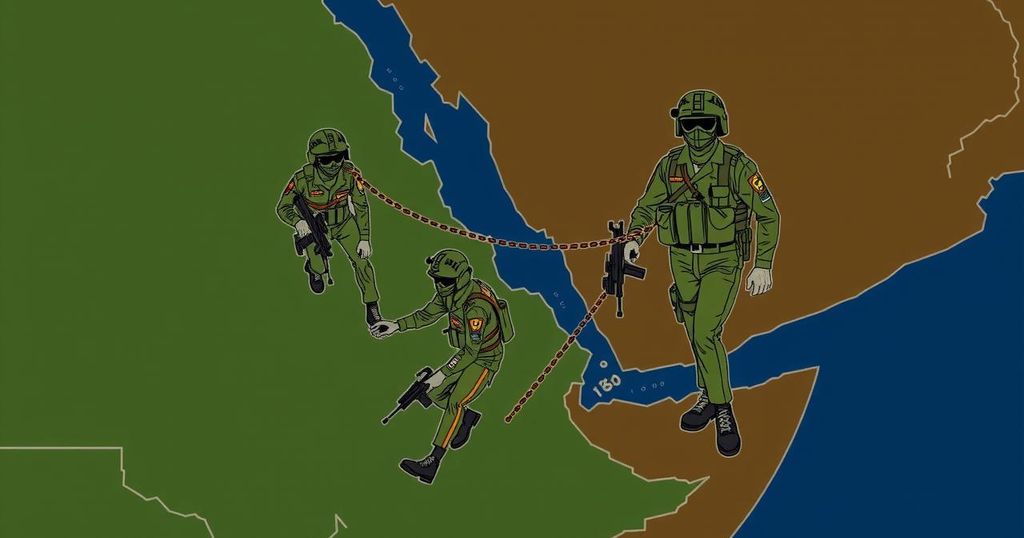The political tensions between Somaliland, Ethiopia, and Djibouti are poised for a crucial period, particularly with the upcoming elections in Somaliland on 26-27 October. A memorandum of understanding between Hargeisa and Addis Ababa could significantly influence the political landscape, while Djibouti’s military training exercises raise concerns over regional stability. Somaliland’s offer of land for an Ethiopian naval base seeks to redefine sovereignty recognition from Ethiopia amidst enduring tensions.
The upcoming political landscape in the Horn of Africa appears to be significantly influenced by a memorandum of understanding (MoU) signed earlier this year between Hargeisa and Addis Ababa. The electoral contest slated for 26-27 October between Muse Bihi, the re-election hopeful of Somaliland, and his main rival, Abdirahman Mohamed Abdullahi, is projected to be pivotal in determining the MoU’s fate. As tensions escalate, accusations of destabilization have surfaced between the Presidents of Djibouti and Somaliland. While Djibouti is reportedly training new republican guard recruits, it asserts that these actions are devoid of hostile intentions toward Somaliland. Nonetheless, Djibouti’s concerns regarding Somaliland’s alignment with Ethiopia are palpable, especially considering the implications of the MoU. In a bid to showcase economic potential, the separatist state of Somaliland is promoting its proposition to lease land for an Ethiopian naval base, contingent upon Ethiopia’s acknowledgment of its sovereignty. This strategy seeks to emphasize the benefits that could accrue not only to Somaliland but also to Kenya and the broader regional dynamics. In parallel, the Ethiopian federal government is recalibrating its political strategy by rehabilitating the former president of the region adjacent to Somalia, with indications that he may soon be delegated roles within the federal structure. This move is expected to alter the security equilibrium between Addis Ababa and Mogadishu, particularly amid ongoing tensions with its neighbor.
The geopolitical dynamics in the Horn of Africa are increasingly intricate, characterized by historical rivalries and emerging alliances. The MoU between Hargeisa and Addis Ababa signifies a strategic partnership amid ongoing tensions with Somalia. Additionally, the political climate within Somaliland, where upcoming elections may determine the future of this partnership, further complicates the situation. Djibouti’s role as a regional power player adds another layer of complexity, as it grapples with its relationships with both Somaliland and Ethiopia, aiming to maintain stability while managing its national interests.
The interactions and rivalries among Ethiopia, Somaliland, and Djibouti illustrate the delicate geopolitical balance in the region. The outcome of the upcoming Somaliland elections may have profound implications for the MoU’s viability and the broader security dynamics within the Horn of Africa. Furthermore, the internal adjustments in Ethiopia’s political leadership signal a strategic recalibration aimed at containing tensions with Somalia while enhancing its influence in the region.
Original Source: www.africaintelligence.com






